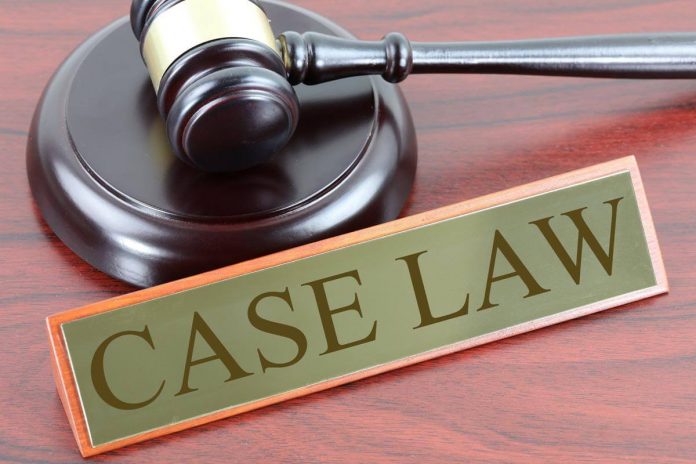This article is written by Ishan Arun Mudbidri, from Marathwada Mitra Mandal’s Shankarrao Chavan Law College, Pune. This article analyzes the case in light of the alleged defamatory allegations made against Naveen Jindal (the plaintiff).
This article has been published by Sneha Mahawar.
Table of Contents
Introduction
The plaintiff has filed a suit for a permanent injunction against the defendants for restraining them from their pre-telecasting rights.
Date of judgment
1st April 2014
Court
Delhi High Court
Citation
Parties
Plaintiffs- Naveen Jindal & M/S Jindal Steel and Power Ltd.
Defendants- Zee Media Corporation & Ors.
Facts of the case
Plaintiff no.1 (Naveen Jindal) is a two-time Member of Parliament from the Kurukshetra constituency and is the Chairman of the company M/s Jindal Steel and Power Ltd (plaintiff no.2). The plaintiff has filed a suit against defendant no.1 which is Zee Media Corporation Ltd, and three senior members of other Zee-owned channels who are Sammer Alhuwalia, Sudhir Chaudhary, and Vasindra Mishra as defendants no. 2, 3, and 4 respectively.
The plaintiff alleges blackmail against him by defendant no. 1 and other senior officers of the company for the plaintiff’s alleged role in a coal scam in the past which is being investigated by the CBI. It is further alleged by the plaintiff, that the defendants demanded advertisement contracts worth crores of rupees and also broadcasted a false CAG (Comptroller and Auditor General) report against the plaintiff.
In response to this, the plaintiff filed two FIRs, one under Section 384, Section 120B of the IPC and another under Section 486, Section 468, Section 469, and Section 471. The plaintiff alleges that the defendants have started a vilification campaign against them. The news programmes aired by the defendants from 1.3.2014 to 24.3.2014 are defamatory. According to the plaintiff,in the news programmes, it is being shown that he is a liar, corrupt, and engaged in unfair trade practices. These are false allegations and are shown because of mala fide intentions of the defendants, says the plaintiff. The plaintiff, who is contesting an election for the third time, alleges these actions of the defendants as a ploy to damage his chances of winning the elections. The plaintiff submitted the allegations against him to the court and has filed a suit for a permanent injunction against the defendant.
Issues
- Whether the allegations made by the plaintiff against the defendants are true?
Contentions
The submissions raised by both parties are as follows:
Submissions made by the plaintiff
Learned senior counsel Mr A.M. Singhvi’s submissions are as follows:
- The first submission by Mr Singhvi is that there is a mala fide intention on the part of the defendants in telecasting false allegations against the plaintiff on their news channel. According to the learned counsel, the telecasts were done by the defendants as a response to the plaintiff exposing their blackmail demanding crores of rupees for not telecasting the alleged illegal allotment of coal mines by the plaintiffs. It is further contended that the registration of the two FIRs by the plaintiff was due to this.
- The next submission by the learned counsel is the proof of the vilification campaign against the plaintiff. The vilification done by the defendants between 5.3.2014 to 24.3.2014, has been repeated over 131 times in 15-20 days. The contents of this have been produced by the plaintiff in writing. It is stated that the same thing was repeated 131 times over for 15-20 days, which shows personal vendetta against the plaintiff.
- It is contended that these defamatory remarks are shown by the defendants to influence the voters against plaintiff 1, who is about to contest his third election.
- To further strengthen their defence, Mr Singhvi drew attention to the false and defamatory reporting done by the defendants. In one of the telecasts, it was being shown that the entire Kumbhar and Prajapat community was against plaintiff no.1. To this, he contended that a particular community can never be against one individual, and if the plaintiff can show at least one person from the community favouring him, then this shows that the reporting done by the defendants is false.
- Lastly, it was argued by the senior counsel, that the plaintiff has no other remedy in this matter. Although, he had complained of this to the Election Commission, which referred the same to the News Broadcasting Authority of India. The election reporting being done by the defendants is investigated by the NSBA. However, as this cannot be an alternative remedy, the plaintiff has no option but to file a suit for a permanent injunction.
Submissions made by the defendants
Learned senior Counsel Mr. Aman Lekhi, appeared for defendant no.1. His submissions are as follows:
- Mr Aman Lekhi argues that the restraint order against the defendants is not fair. Article 19(1)(a) of the Indian Constitution, guarantees freedom of speech and expression, with certain reasonable restrictions mentioned in sub-clause (2). Freedom of the press falls under this Article. Reasonable restrictions are the sovereignty of India, public order, morality, decency in contempt of Court, friendly relations with other states, defamation and incitement of offence. As the acts done by the defendants do not fall in any of these categories, these allegations are not valid.
- He further contends that the reporting done by the defendants fall under the domain of fair comment and has valid justification.
Learned senior counsel Ms. Pratibha Singh, appeared for defendants no. 2, 3, and 4. Her submissions are:
- There is no malice on part of the defendants who have a valid justification in publishing the news items.
Judgment
Hon’ble Mr. Justice VK Shali held that the plaintiffs are not entitled to any pre-telecast order against the defendants. Further, according to the NSBA guidelines, the defendants before broadcasting any news programme involving plaintiff no.1, must consult plaintiff no.1 & 2.
Lastly, the application of the plaintiff for permanent injunction was disposed of by the Court.
Relevant cases
A list of various judgments was referred to by both parties in the present matter.
Firstly, both the parties referred to the case of Tata Sons Limited vs. Greenpeace International & Another,(2011). In this case, certain paragraphs from Bonnard v Perryman (1981) were used. In Bonnard’s case, it was held that, if the defence of justification is certain to fail in trial, then an interim injunction should not be awarded.
Learned senior counsel Ms Pratibha Singh, appearing for defendants no.2, 3, and 4, referred to the case of Khushwant Singh & Anr v Maneka Gandhi (2002). In this case, the appellant was the author of an autobiography, which was ready for publishing. In this book, there were certain chapters regarding the Gandhis which the respondent was unhappy about. Hence, the respondent filed suit for injunction and claimed damages against the appellant, stating that she is the daughter-in-law of late Prime Minister Mrs Indira Gandhi, and to protect her family name, she is filing the suit. The Court observed that Article 19(2) of the Constitution provides for reasonable restrictions which cannot be violated by an individual or state. The book and chapters in contention were not yet published. Hence, the Court granted a pre-publication injunction and held that the respondent cannot prevent the publication. Her remedy is available in the form of damages.
Learned senior counsel Mr Singhvi appearing for the plaintiffs, referred to the case of Shree Maheshwar Hydel Power Corporation Ltd. vs. Chitroopa Palit and Another (2004). In this case, the appellant company had filed a suit for an injunction in the Bombay Civil Court alleging defamatory statements by the respondents. The Court, in this case, held that the respondents shall not make defamatory statements against the appellants which represent allegations including conspiracy, connivance, syphoning off funds, loot, spreading terror, etc.
Observation of the court
The observations of the learned single Judge are as follows:
- After going through the present matter, it was found that the statements made by the defendants in their reporting may be incorrect but are not defamatory. Hence the Court was of the view that instead of raising allegations, ignoring such reporting is appropriate.
- While answering the question of influencing the election results, the Judge observed that since the past few decades Indian voters have never gotten influenced while voting. Hence, this contention was rejected by the Judge.
- Answering the question of alternative remedy, the Judge observed that the plaintiff himself just approached the EC and did not go to the NSBA. The EC sent the complaint of the plaintiff to the NSBA. Hence, this cannot be a ground for alternative remedies. The NSBA shall give its judgment after 15 days and by this time, half the process of election polling will be over. Hence, the complaint of the EC or NSBA is not a ground for no suit of the plaintiff. The guidelines of the NSBA, are with a view that news channels provide fair and accurate news and by avoiding bias, baseless rumours in the process. In the present case, the allegations made against the plaintiff are not defamatory but are also not satisfactory. Hence, it was held that while broadcasting reports involving the plaintiff, the defendants should take the view of the plaintiff and then publish such news items.
- It was finally observed that the present matter needs adjudication of the Court to conclude alternative remedies, regarding whether the allegations of the defendants against the plaintiff are defamatory or not. If it is not defamatory, then the suit is valid otherwise if the allegations are defamatory, then the plaintiff shall be liable for damages. Hence to restrain the defendants from pre-telecasting their news, will be a violation of the freedom of the press.
Analysis
The emphasis given on Article 19 of the Indian Constitution, was crucial in deciding this case. Article 19(2) mentions certain reasonable restrictions that fall under the term freedom of speech and expression. Further, Article 19 also guarantees freedom of the press, and in this case, restraining the defendants from their pre-broadcasting rights would have violated this article.
Section 38 of the Specific Relief Act was also referred to in this case. This Section in simple words states that, if anything which is complained of can be solved by money or for which money is the final relief then, such a matter should not be granted for an injunction. In the present case, this Section was used to state that, adjudication by the Court is required to decide whether the allegations made against the plaintiff were defamatory or not.
Conclusion
The Court in the above-mentioned case did not accept any personal grudges that both the parties had against each other and held the law of the land supreme.
References
Students of Lawsikho courses regularly produce writing assignments and work on practical exercises as a part of their coursework and develop themselves in real-life practical skills.
LawSikho has created a telegram group for exchanging legal knowledge, referrals, and various opportunities. You can click on this link and join:
Follow us on Instagram and subscribe to our YouTube channel for more amazing legal content.
 Serato DJ Crack 2025Serato DJ PRO Crack
Serato DJ Crack 2025Serato DJ PRO Crack










 Allow notifications
Allow notifications


